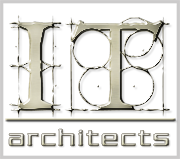Though data management has a variety of organizational benefits, the two fundamental benefits of data management are: 1) Increased revenue generation and decreased expenses, and 2) Resolved operational issues and problems. Together, these benefits allow an organization to streamline its business processes and reduce unnecessary cost. This requires an Enterprise Data Management capability to ensure that good data is available to the organization. Specifically, this advantage is achieved by the following outcomes of Enterprise Data Management:
1. Improved Data Quality: Data management allows for data quality standards to be put in place to ensure accurate, consistent, and usable data.
2. Improved Information & Communication Sharing: Data management provides a centralized mechanism for sharing of documents and business information across the organization.
3. Improved Operational & Process Efficiencies: Increased access to data and information sharing results in less duplication of work and resource needs for business initiatives.
4. Increased Flexibility for Decision-Making: Accurate and timely access to data allows for streamlined and data-driven decision-making.
As a whole, these data management improvements drive increased revenues and decreased expenses. Improved data quality and information sharing allows accurate data to be used at the right time and by the right people, which allows proper data analysis of processes and operations to occur, and then provides decision-makers the correct information to make data-driven decisions. Ultimately, with the right decision-making information, accurate decisions can be made to improve revenues and decrease costs.
IT Architects provides a service to assess your organization’s data management capabilities and establish an Enterprise Data Management (EDM) practice. IT Architects will work with data stakeholders and data management resources in your organization to develop a successful EDM practice based on industry best practices known as Data Management Body of Knowledge (DMBOK). The core set of deliverables include the following:
• Strategy to establish a data management practice
• Framework and organization for data governance
• Guidance, models, and artefacts for core areas of a data management practice
• Roadmap to mature the data management practice over a practical timeline
Through implementation of the provided deliverables, the EDM practice will ensure the provisioning of quality data that will help shape business strategy, business development, business process improvement, and business operations of the organization.


